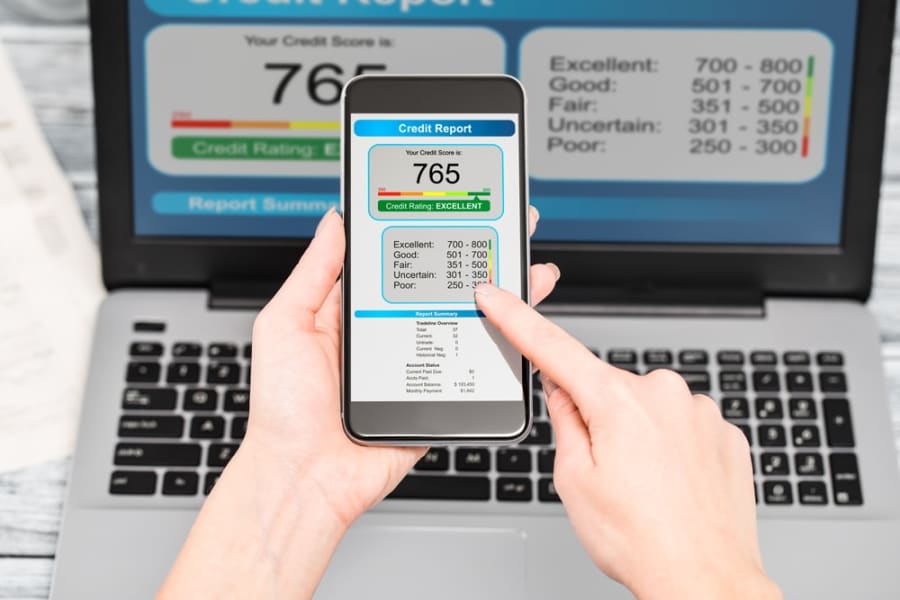
The Credit Score section addresses the Frequently Asked Questions (FAQs) on credit score CIBIL reports, and informs you of how your credit score impacts your credit card and loan eligibility. A credit score is provided by credit bureaus like CIBIL, Equifax and Experian. Banks and NBFCs (Non Banking Financial Companies) value the potential risk posed by each customer by checking their credit score, be it the CIBIL score, Equifax score, or Experian score. Transunion CIBIL Limited, formerly Credit Information Bureau India Limited, is the most well known and one of the oldest bureaus in India. Your credit score helps the lender to determine whether you are eligible to avail loans and credit limits.
How Is My CIBIL Score Calculated?
Your CIBIL score is a 3 digit number and ranges from 300-900. Having a CIBIL score of over 750 is a good thing, in which case many lenders will be willing to give you a loan/ credit card. The CIBIL score is calculated on a number of factors, especially on your payment history. Your repayment record to date makes up 35% of your CIBIL score. Additionally, among an entire host of other factors that contribute to your score, the significant ones are
- Your total available credit balance
- Balance between your secured and unsecured loans
- Total number of credit cards and loans you have
- Credit utilization
What If I Have Never Had A Credit Card Or Loan Before?
In case a borrower does not have a credit history, CIBIL or whichever bureau is calculating the score, marks the case as NH or ‘No History’. In most of these cases, banks and NBFCs will be unwilling to give a loan, while others might charge very high rates of interest and not provide you with any unsecured credit facilities.
How To Establish A Credit Score:
Since banks and NBFCs can’t look at your credit history, they take other factors like your income and employment stability into consideration. If you are new to the credit, you can try
- Getting a secured credit card and paying all your bills on time.
- Making sure you do not apply for too many credit cards or loans within a short period of time.
How To Improve Your Credit Score:
- Pay bills on time. Making even one late payment, partial payment, or skipping a payment altogether has a negative effect on your credit score. Regardless of whether the amount is small or great, the impact on your credit score is great.
- Keep credit balance low. Don’t exceed more than 50% of your credit limit. This ensures your credit utilization ratio – the proportion of actual spending to credit limit – is at a lower rate and has a positive impact on your score.
- Apply for new accounts only when needed. Make sure you don’t open too many credit accounts.
- Pay your entire bill amounts rather than just the minimum amount for your credit cards.
The Importance Of Checking Your Credit Score:
Your credit score has a direct impact on whether you get a new house, new car or even a new job. Regularly reading your CIBIL report, pointing out and reporting inaccurate details, and ensuring accuracy of your CIBIL report are advisable to maintain a perfect credit score. Also, banks and lenders check your CIBIL score when you apply for a loan. It is in your best interest to check your credit score/ CIBIL report before you approach a bank for a loan.
If your credit score is currently low, stop applying for credit. Every time you apply for a loan with a poor CIBIL score, you will either be rejected, or you will get a loan approval with a high rate of interest. Every rejection will further reduce your CIBIL score. Therefore it is advisable to first bring your credit score to 750, and only then apply for a loan/ credit card.
